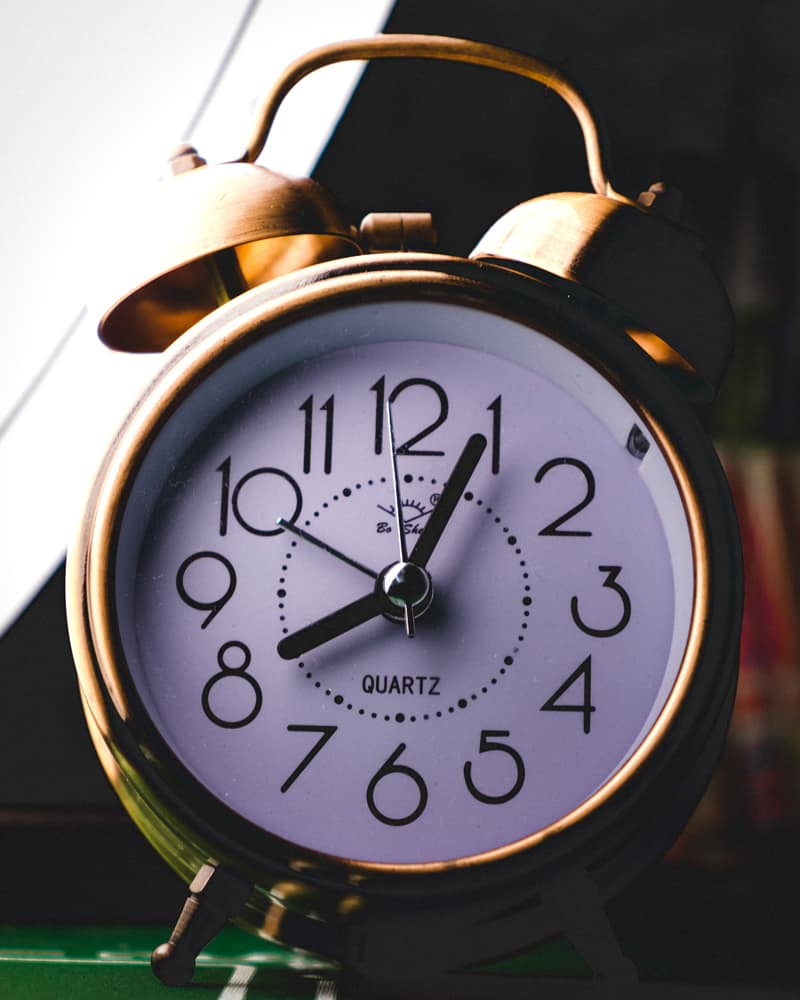We recently published an extract from Dr Ginni Mansberg and Jo Lamble’s new book The New Teen Age that really struck a chord with many readers. After reading about the impact of reduced sleep on teens, a few mums even wrote to us to say that they were now freaking out. “Knowing just how much staying up late is affecting my son and daughter’s health is horrifying,” wrote one mum. “But I’ve had zero impact trying to get them to go to bed earlier. Please tell me exactly what I can do to help my teens get enough sleep!”
If that doesn’t sound like a call to arms, I don’t know what is!
You can read the original article here.
The thing is, it’s quite natural for sleep to be disrupted in adolescence. Hormones change a person’s circadian rhythms and create something called a ‘sleep phase delay’. Secretion of melatonin is delayed by up to two hours, so adolescents naturally don’t ‘feel sleepy’ until later at night than children or adults. They may lie awake well past their bedtime and decide that it’s because they ‘don’t need’ to sleep.
However, the complete opposite is true. Kids need sleep in adolescence just as much as ever. Here’s what you can do to help your teen get enough sleep. Start with the first two points, because without them you won’t get anywhere whatsoever. Then try some of the additional strategies and see what works for your kids.
Strategies to help teens get enough sleep

1. First, you’ll need buy-in
Without this, you won’t get anywhere trying to help your teen change their sleep patterns. They have to want to have a better sleep routine in the first place. How do you bring them over to the dark side (so to speak!)? Try these suggestions:
- Have them read our article about the negative affect of a lack of sleep on kids. Points #7 and #9 might have a particularly strong impact on teens…
- Then try approaching it from an ‘overall health’ perspective. Hit them where it matters most:
- If you’ve got a sporty kid, talking to them about how sleep optimises athletic performance might be a good strategy.
- For an academic kid, the approach might focus on sleep’s impact on concentration and memory retention.
- Those kids who value creativity and being artistic might be swayed knowing how sleep can boost creativity.
- Sleep also impacts mental health, so some kids might respond to knowing its effect on anxiety or depression.
- Others might simply want to know that getting enough sleep makes managing friendships and other relationships easier.
- If all else fails, it’s worth ‘swapping’ something your child wants for a promise to work towards better sleep habits. While this isn’t the ideal way to achieve buy-in, any port in a storm, right? This might be swapping a weekly lift to a friend’s house for an agreement to be in bed by 9.30pm. Or getting out of daily chores if they go to bed on time the night before. You might even ‘swap’ buying them a longed-for item for a few months good sleep. Whatever works at your place.
- Getting enough sleep is so important (for everyone, but especially in the adolescent years), that if I wasn’t getting their buy-in using the methods above, I’d have no hesitation in paying my teens to agree to make sleep a priority.
I’d have no hesitation in paying my teens to agree to make sleep a priority.
2. Get the screens sorted
Study after study has found that excess use of screens (especially at night) has a direct impact on sleep. Using screens – at any time of day, but particularly at night – affects the body’s ability to produce melatonin, which delays the feeling of sleepiness and leads to less restful sleep when they do finally fall asleep. Excess screen time, has also been linked to shorter overall sleep time and increased daytime tiredness. It’s the stimulation, distraction and general light coming from screens that is the problem.

The ABC’s Australia Talks Survey 2021 also found that keeping devices in an adolescent’s rooms overnight was a sure-fire way to wreck their sleep. More than 50% of teens admitted to using these devices after their parents assumed they were sleeping.
In other words: kids aren’t trustworthy around screens as a rule. It’s not their fault and it’s not that you don’t specifically trust your own teen, but the stats don’t lie! Screens are tempting, distracting little buggers that lure us awake by pinging at us to check that we’re not missing out on anything. How are kids going to resist that? Willpower alone is not going to cut it, and nor is ‘promising’ to stay off their devices after light’s out. They need to go, full stop.
To get the screens sorted at night, manage their overall use during the day and get them out of the bedrooms. Lock them up if necessary and buy your kid a separate alarm clock. Put it this way, if we don’t get the devices out of the bedrooms, there’s not a lot else we can do to help teens get enough sleep.
Tips to limit overall screen time: Managing screen time is about more than setting limits
3. What you do in the daytime matters
It’s not all about the night. Studies have shown that our body clock gets primed for a good night’s sleep from the moment we wake in the morning. Being exposed to sunlight immediately after waking helps us feel sleepier at night. So spending five minutes outside first thing in the morning will help teens get enough sleep that night.
Good sleep is built across a whole day, not just at bedtime.
There’s also the importance of getting some exercise very day to improve sleep onset (the amount of time it takes to fall asleep), duration and quality. Moderate-to-vigorous movement for at least 30 minutes no later than an hour before bed is all it takes to improve sleep quality. Hopefully your child is already getting plenty of daily exercise, but encouraging an after-dinner walk might help too.

Finally, it’s important to encourage the kids to eat a healthy diet with plenty of water, vegetables and wholegrains. A diet high in fibre and low in saturated fat is best. Caffeine should be kept to an absolute minimum, and preferably zero after 4pm. Adolescents are particularly susceptible to caffeine, so that means keeping an eye on the Coke Zeros and both eyes on the iced coffees and lattes.
All of this is the usual commonsense approach to healthy living, but I’m noting it down here as a reminder that good sleep is built across a whole day, not just at bedtime.
Healthy living tips: 3 daily wellbeing habits (these are my non-negotiables)
4. Establish a solid bedtime routine
It worked when they were babies and it still works now. A strict bedtime routine is crucial for (a) winding down at night to prepare the body for sleep and (b) help teens get enough sleep by getting them to bed at a decent time.
At this age, the bedtime routine should encompass any hours after dinner is finished and before it’s sleep time. Start with the time your child needs to get up in the morning. Then work the bed time back from there to allow for the total sleep time you want your child to have.
Amount of sleep we’re aiming for
A quick word on the amount of sleep an adolescent (11-17 years) needs: eight to 10 hours sleep a night is recommended. The younger the child, the closer to ten hours of sleep they will most likely need. That means that if your child needs to be up at six to get ready for school, they will need to be asleep no later than 8pm for younger kids and 10pm for older kids.
It also depends on individual needs, so work with your teen to experiment on how much sleep suits them best. Change their sleep time by half an hour each day and see if they are still able to get up willingly when the alarm goes off in the morning. If it’s hard to get up more often than not, they need more sleep.

For a teen, the bed time routine might look something like this:
- 7 pm – Help with after-dinner chores like washing and tidying up
- 7.30 pm – 1.5 hour gaming / browsing / YouTube / social media
- 8.30 pm Screens away and hot shower or bath to help wind down
- 8.50 pm – Listen to music and work on a quiet hobby (reading, drawing, yoga, painting, collecting, puzzles, colouring, playing an instrument, creative writing, etc)
- 9.20 pm – Pack away the day and prepare for tomorrow
- 9.30pm – Say goodnight to the family, take devices out of the bedroom to charge and get into bed
- 9.30 pm – 30 minutes of quiet time in bed (see more on this below)
- 10 pm – Sleep time = lights out
5. Investigate some sleep soothers
There are lots of different ‘sleep aids’ that may also help your teen get enough sleep. Medications like melatonin or herbal supplements like valerian may be something you would like to try, so please consult your family doctor on those. For non-medical sleep soothers, give some of these a go.
Meditation
Meditation and other mindful activities have been shown to significantly improve sleep quality. Calming the mind helps settle the body, evoking the relaxation response and increasing the production of the sleep hormones serotonin and melatonin.
Meditation can be as simple as doing some breathwork like 4-7-8 breathing, counting sheep or simply letting your thoughts drift by without focus.
If your teen has never meditated before (they often learn techniques at school), it might be helpful to give them access to an app like Headspace or Smiling Mind to help them along. While this goes against the ‘no screen’ rule above, you can agree to let them use the app for 30 minutes and then take their phone away for the night.
More on this: Why mindfulness for kids is more than just a buzzword
Journaling
This is an especially good quiet activity for kids who are prone to anxiety. Journalling just before sleep is a good way to get thoughts out of our head and create a calmer mind.
Your teen may like to use their journal to write down a daily gratitude list, compose some poetry, write a traditional journal entry or even just write some to-do lists for the day ahead. It’s actually been shown that writing out a to-do for tomorrow helps people fall asleep faster.

Music
Listening to music can help some people drift off to sleep. Slow and steady non-danceable music with a stronger bass and lower frequency works best. Many classical music pieces fit the bill (Beethoven’s Moonlight Sonata and Debussy’s Clair de Lune are two), but that won’t be to every adolescent’s tastes. Songs like Coldplay’s Fix You and Yellow fit the bill, as does Florence and the Machine’s Cosmic Love.
Again, they’ll probably turn their noses up at these ‘old people’ classics. To help you get a feel for the kind of music that works, there’s a playlist compiled by UNSW sleep expert Dr Thomas Dickson here. As with meditation using an app, agree to take your child’s phone from their room at a certain time.
The ‘Military Method’
This relaxation method comes from US Navy training as outlined in a book called Relax and Win: Championship Performance by Bud Winter. Apparently the method helps 96% of soldiers fall asleep even in the middle of a combat zone… so it’s definitely worth a try to help your teens get enough sleep!
- Relax your entire face, including your eyelids, tongue and jaw
- Drop your shoulders to release all tension, then let your hands drop to the side of your body
- Inhale, then exhale deeply, letting go of your chest
- Then relax your legs, including your thighs, knees, calves and ankles
- Clear your mind for 10 seconds by imagining a relaxing scene
- If this doesn’t work, try saying the words “don’t think” over and over for 10 seconds
- Within 10 seconds, you should fall asleep…
White noise
Did you have a white noise machine when your kids were babies? It might be time to drag it out of the closet. For the same reasons it soothes babies, white noise can help an older child switch off their over-stimulated brain and fall asleep. That is, white noise consists of every audible frequency, which means it creates a blanket of sound that blends all other noise into one consistency. So you’re not woken by the owl or car alarm outside your bedroom window.
If you didn’t manage to hold onto the white noise machine for a decade, there’s a good overview of systems here.
6. Set some hard rules
Work with your kids to establish some structured boundaries that show their commitment to their sleep and health. This should include what time they start getting ready for bed, what time they are in bed and what time the light is out. Set it out as a pledge, like this example:
“I will start getting ready for bed at X o’clock and be in bed by Y o’clock. I will read/meditate/journal for X minutes with lights out at Zzzz o’clock. I’ll get up at A o’clock each morning.”
Remember, the ‘wake up time’ is the time that sets the whole routine in motion. It’s important for your teen to stick with it and not be tempted to ‘sleep in’ on the weekends. Yes, adolescents can get tired during the week and be temped to ‘catch up’ on the weekends. It’s not unusual to see them surface at midday or later. However, all the studies indicate that this isn’t doing them any good. In fact, sleeping in on the weekends can disrupt their weekday sleep even further.
Instead, the solution might be taking a 30-60 minute nap on weekends, sometime between midday and 2pm.
Do you have any other advice to share to help teens get enough sleep?
Feature image by Victoria Heath; b+w by Kinga Cichewicz; laptop at night by Jay Wennington; sunlight by Leon Biss; clock by Adrien Robert; journal by pure julia

